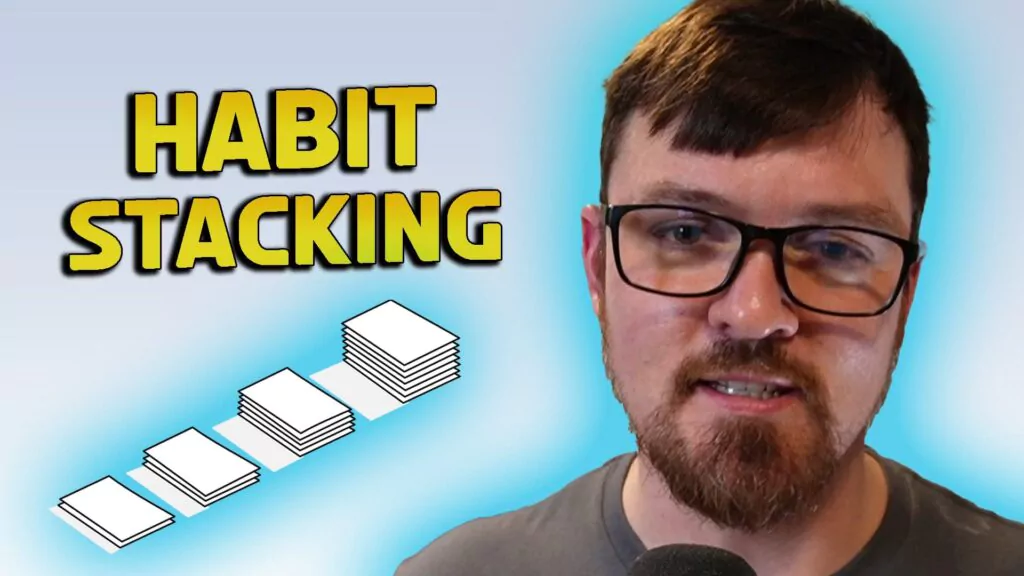Today, we’re going to delve into some practical tips on how you can start building your habit. If you haven’t already, I recommend going back to watch the Monday video or read the blog. It’s crucial that you understand your ‘why’ and define your ‘what’ before attempting to build your habit. I assure you, maintaining a habit without proper motivation and clarity on your destination will be significantly more challenging. However, if you have those two elements, this blog should provide some practical tips on how to start building your habit.
Habit formation is one of my favorite subjects, so please forgive me if I get a bit carried away. If you’re interested in a comprehensive book on this topic, James Clear’s book Atomic Habits is the gold standard. It’s packed with an incredible amount of value in a very digestible format. Even if you’re not an avid reader, you can listen to it on audio. It’s truly fantastic. I highly recommend everyone read this book.
To get us started, the first practical tip I’m going to share is to write out your habit stack. Let me first explain what a habit stack is. The reality is that the majority of our actions in life are habits, and they exist in what’s called a habit stack. This means, when I finish doing one thing, I do another. For instance, when I finish putting on my right shoe, I put on my left shoe. You might have a specific bench or chair where you always sit to put on your shoes. If you start paying attention, you might find that you put on your shoes the same way every time. This is a habit stack. The same principle applies to any repeated, unconscious motion. Upon examining our lives, we often find these hidden habit stacks everywhere.
For your writing habit, you want to build a habit stack specifically for writing. My habit stack looks something like this: I wake up when my alarm goes off. I get out of bed immediately without snoozing. After silencing my alarm, I go downstairs and start my coffee. While my coffee is brewing, I get my journal and write one page. Once I’ve finished journaling, I get my coffee from the pot and go downstairs. Once I’m downstairs, I turn on the light, sit down at my computer, and begin working. This routine happens every single morning without thought; it’s unconscious.
However, you’ll notice that when I initially described my habit stack, I detailed every single step. This is crucial. The idea of ‘after I finish this, I do that’ creates a sense of momentum. When we write it down by hand, it’s ingrained in us even more. So, I want you to write your habit stack by hand. If you don’t already have a habit stack, don’t worry. You can write one down and then try to follow it.
This brings us to our next point: start small. As you develop your habit stack, take small steps. One of the biggest challenges with habit formation is that we often try to do too much at once. I didn’t build my writing habit stack all at once. In fact, I started with one simple step: get up when my alarm goes off. For about 10 to 20 days, I focused solely on getting up as soon as my alarm went off. Once that was ingrained in me, I added the next step: turn on the coffee pot and journal.
Instead of setting a time limit for journaling, I decided to journal one page. The pages in my journal aren’t large, so it wasn’t an intimidating task. I repeated this process until it became a habit. Then, I added the next step: take my coffee cup downstairs to my office, turn on the light, and start work. This step took even longer to add to my habit stack. However, because I took small, incremental steps, nothing ever felt like a major stretch. It just felt normal and right. This is because I spent time intentionally tuning my habit stack.
I want you to do the same. Write out your entire habit stack—the ideal version—and then break it down into manageable pieces. Take it one step at a time and practice each bit sequentially. You’ll notice that I’m focusing a lot on how to build your habit stack to get you started, rather than on how to do the actual writing. That’s because beginning is everything. If you can get yourself to the point where you start working, where you start writing, you’ll figure out the rest. You don’t need a habit for when you are writing—that requires discipline, which is a topic for another video. What you need is a habit to get you started.
If you’re a writer, you know that once you sit down and start writing, the words will come. It might be a struggle, it might be difficult, but as long as you stick with it, they will come. So, focus on ensuring you get started. That’s where this habit stack and taking small steps come in.
I’ve shared my habit stack with you. If you have any questions about it, please let me know, and if you’re working on a habit stack, I’d love to hear about it. Let me know how you’re arranging your time to get yourself started.

YouTube Video Link: https://youtu.be/ZiZMCFUiXVU
Thanks for reading and watching.
Want in on all the secrets of writing compelling books? Have burning questions for Seth about the business side of being an author? Join the email list for up to date info on the latest videos!
"*" indicates required fields